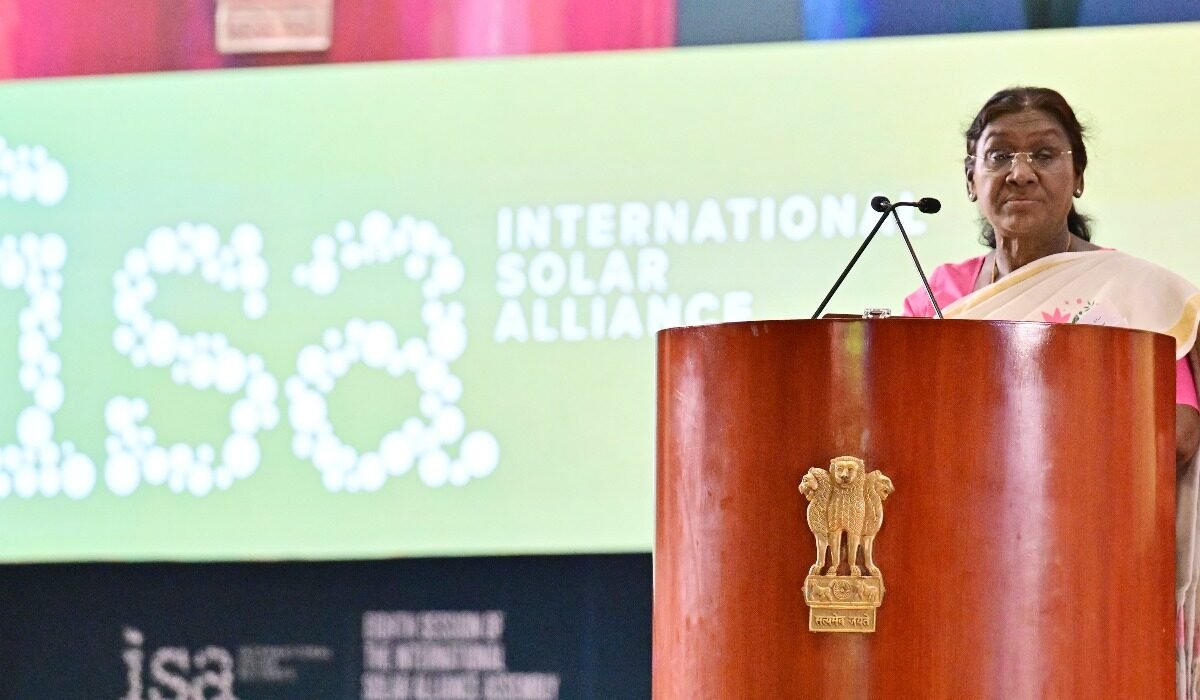Introduction to the International Solar Alliance Assembly
The International Solar Alliance (ISA) is a coalition of countries, aimed at fostering the adoption of solar energy on a global scale. Established in 2015, the ISA emerged in response to the critical need for renewable energy solutions to combat climate change and promote sustainable development. The initiative highlights the importance of solar energy as a viable alternative to fossil fuels, addressing the pressing challenges of energy access, security, and environmental concerns. By providing a platform for collaboration among member countries, the ISA promotes innovative approaches to harnessing solar power effectively.
One of the primary objectives of the ISA is to facilitate the deployment of solar technologies in developing nations, which often face significant barriers due to inadequate infrastructure and financial constraints. Through capacity building, technology transfer, and financial support, the alliance seeks to empower these nations, enabling them to leverage their solar potential for economic growth and social well-being. Moreover, the ISA advocates for policy frameworks that encourage investments in the solar sector, ensuring a steady transition towards sustainable energy systems.
Recently, the eighth session of the International Solar Alliance Assembly was inaugurated in New Delhi, serving as a crucial event in the journey towards global energy sustainability. This assembly brought together representatives from various countries to discuss advancements in solar energy, with a particular emphasis on the role of women in this transformative sector. Women’s participation is essential for driving innovation, enhancing workforce diversity, and promoting equitable access to clean energy solutions. By fostering gender inclusivity within the solar energy field, the ISA aims to create a robust and sustainable future, benefiting both the environment and society as a whole.
President Droupadi Murmu’s Keynote Address
During her inaugural address at the International Solar Alliance Assembly, President Droupadi Murmu accentuated the critical role of women in various sectors, with a particular focus on renewable energy. She emphasized that women’s participation in the energy sector is not only essential for achieving sustainability but also pivotal in driving economic growth and social development. President Murmu articulated her belief that empowering women in renewable energy can lead to transformative changes in communities, paving the way for a future where energy access becomes a catalyst for female empowerment.
In her speech, President Murmu referred to the pressing need to harness solar energy as a powerful tool for promoting gender equality. She noted that women often bear the brunt of energy poverty, and addressing this issue requires comprehensive strategies that prioritize their needs. By integrating women’s perspectives into renewable energy initiatives, President Murmu believes that the sector can unlock innovative solutions, thus contributing to the UN Sustainable Development Goals. Highlighting the intersection of energy access and women’s rights, she urged policymakers and stakeholders to actively promote gender-inclusive policies that can help dismantle longstanding barriers.
Moreover, President Murmu pointed out that women in leadership positions within the renewable energy sector can inspire future generations and create a more equitable world. She stressed the importance of mentorship and training programs aimed at equipping women with the necessary skills for leadership roles in renewable energy. By fostering a culture of empowerment, the president envisions a dynamic shift in how energy solutions are conceived and implemented. Ultimately, her remarks serve as a clarion call for both the public and private sectors to recognize the vital contributions that women can make in creating a sustainable energy future.
The Role of Women in Renewable Energy and Sustainable Development
Women have long been recognized as pivotal contributors to various sectors, including the renewable energy domain, particularly solar energy. Their involvement is not merely beneficial; it is essential for fostering innovative solutions and implementing inclusive practices regarding energy access. Women bring unique perspectives and expertise to the table, enhancing decision-making processes and advocating for community-specific energy needs. The diverse experiences of women can lead to tailored solutions that resonate with local populations, ultimately improving energy sustainability and accessibility.
Moreover, the engagement of women in the renewable energy sector encourages the creation of policies that prioritize equitable energy distribution. Effective energy access initiatives that include women’s voices can address the specific challenges faced by communities, such as energy scarcity and reliance on non-renewable sources. By empowering women, the energy sector can become more responsive to both their needs and the overall community, establishing a pathway toward sustainable development.
To fully realize these benefits, it is crucial to implement policies and initiatives that support women’s leadership in the energy sector. Training programs, mentorship opportunities, and supportive networks can empower women to take on leadership roles in renewable energy projects. Additionally, governments and organizations must recognize the need for gender-sensitive policies that encourage women’s participation and leadership in sustainable practices. By embracing these strategies, the renewable energy sector can transform into a more inclusive space, resulting in broader social and economic gains.
In conclusion, the role of women in renewable energy, specifically solar energy, is indispensable for driving sustainable development. Their unique contributions and leadership can lead to innovative practices that enhance energy access, making a significant impact on communities worldwide. By prioritizing women’s empowerment in renewable energy initiatives, we can pave the way for a more inclusive and sustainable future.
Conclusion and Future Perspectives
As the International Solar Alliance (ISA) Assembly convenes, it becomes increasingly evident that solar energy not only serves as a catalyst for energy transition but also emerges as a critical tool for women’s empowerment globally. President Murmu’s address underscored the transformative potential of renewable energy, emphasizing its role in enabling women to take charge of their own livelihoods. The assembly highlighted successful initiatives that focus on integrating women into the solar energy sector, outlining a path forward that emphasizes inclusivity and sustainability.
The discussions held during the assembly shed light on various strategies that stakeholders can adopt to foster women’s leadership in renewable energy. By prioritizing gender-responsive policies and resources, we can ensure that women are represented in decision-making processes and have access to training programs that will equip them with the necessary skills to thrive in the solar energy industry. This concerted effort can facilitate diverse perspectives, subsequently enhancing innovation and growth within this field.
Looking ahead, the promise of solar energy as a driver of socio-economic development cannot be overstated. By empowering women through solar initiatives, communities will benefit from increased access to clean energy, enhanced economic opportunities, and improved health outcomes. Thus, the future of renewable energy must include active collaboration among governments, private sectors, and civil society organizations to amplify efforts that promote women’s leadership. Stakeholders must take initiative to support and invest in programs that uplift women, creating an environment conducive to sustainable development. The potential long-term impacts on communities and the environment are profound and warrant prompt action in the pursuit of a more equitable and resilient future.










